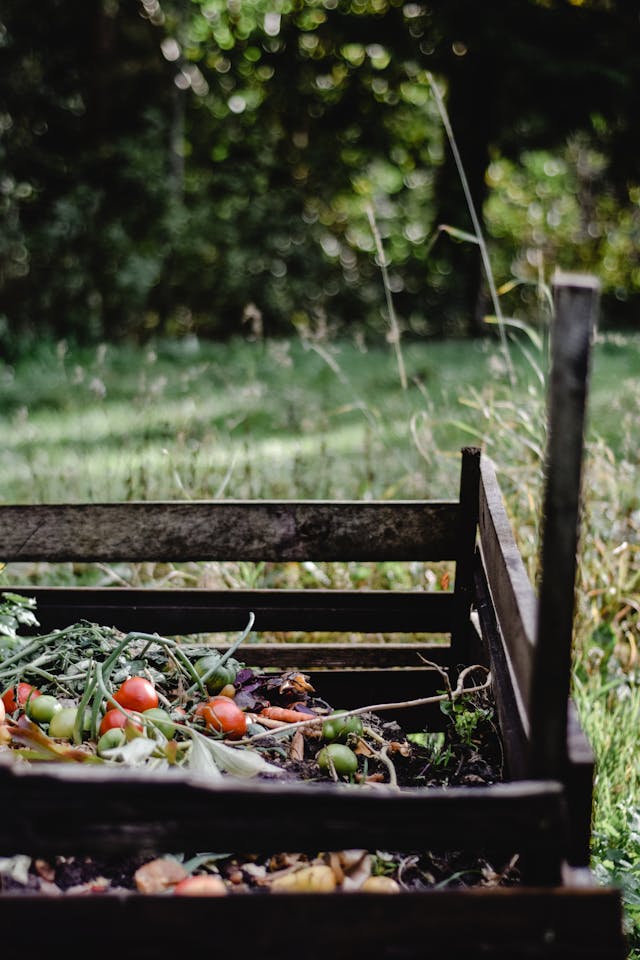In recent years, the buzz around sustainability and eco-friendliness has taken root in our everyday lives. One of the simplest and most impactful ways to contribute to the environment is through home composting. It’s not just for the environmentally conscious or avid gardeners anymore; composting is for everyone. If you’re a homeowner, an apartment dweller, or a busy parent, you can easily incorporate composting into your routine. This guide will provide you with the tools you need to get started, what you can compost, and how to use the finished product to enrich your garden.
What is Composting?
Composting is nature’s way of recycling organic matter, such as food scraps and yard waste, into a valuable fertilizer for your garden. The process transforms these materials into rich, dark humus, which is teeming with nutrients that can rejuvenate your soil. In simpler terms, composting takes your kitchen and garden waste and turns it into “black gold” for your plants.
Why Compost?
You might wonder, “Why should I start composting?” Well, consider this: approximately 30% of the waste that we throw away is organic material, which ends up in landfills. When these materials decompose in a landfill, they produce methane, a greenhouse gas that is significantly more harmful than carbon dioxide. By composting, you are not only reducing the amount of waste sent to landfills but also lowering your carbon footprint.
In addition to environmental benefits, composting can save you money. You can reduce your grocery bills by using food scraps instead of buying expensive fertilizers and soil amendments. Furthermore, you’ll find that composting enriches your garden soil, making it healthier and more productive.
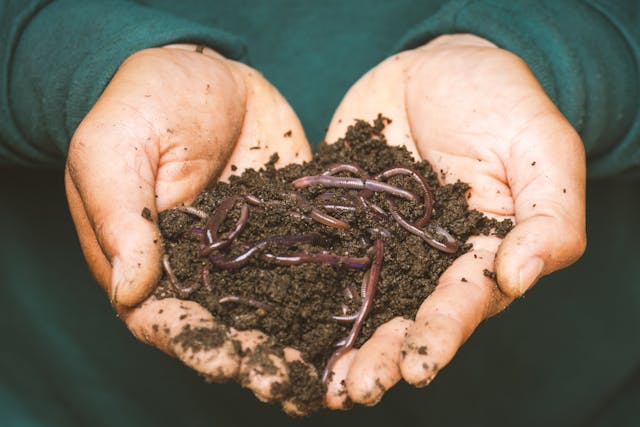
Getting Started with Composting
Starting a compost bin at home is easier than you might think. You don’t need a large yard or fancy equipment; all you need is a small space and a little time. Here are some steps to help you embark on your composting journey:
- Choose a Location: Find a dry, shady spot in your garden or backyard that is easily accessible. If you live in an apartment, consider using a composting bin or even a worm composting system (vermicomposting) in a corner of your balcony.
- Select Your Composting Method: You can choose from various methods to suit your lifestyle. Common options include:
- Traditional Bin Composting: Use a compost bin or pile to collect and mix organic waste.
- Tumbler Composting: A rotating compost tumbler allows for easy mixing and aeration, speeding up the decomposition process.
- Worm Composting: Red wigglers break down food scraps quickly and produce nutrient-rich castings.
- Gather Materials: Start collecting organic materials that you can compost. This leads us to the next important question: What can you compost?
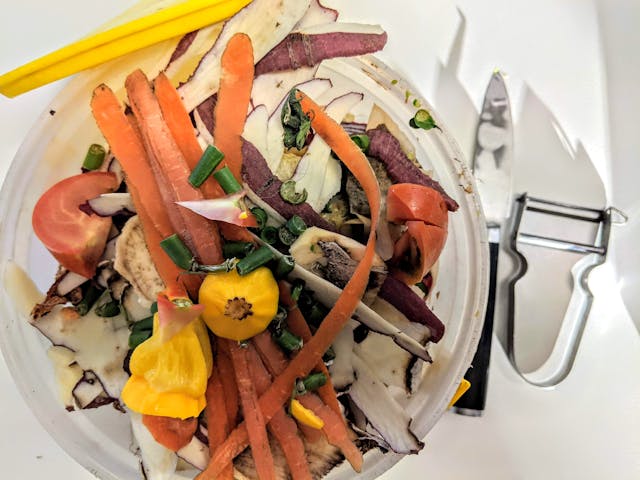
What Can Be Composted?
The beauty of composting lies in its versatility. You can compost a wide variety of organic materials, including:
- Fruits and Vegetables: Any leftover fruit and vegetable scraps are ideal. Banana peels, apple cores, and carrot tops all break down easily.
- Coffee Grounds and Tea Bags: These provide nitrogen and improve soil acidity.
- Eggshells: Crushed eggshells are a great source of calcium for your plants.
- Yard Waste: Grass clippings, leaves, and small branches can all be composted.
- Shredded Paper and Cardboard: Non-glossy paper products can be added in moderation, as they provide carbon to balance the nitrogen-rich materials.
- Plant Trimmings: Remove dead leaves and flowers from your garden and add them to the compost pile.
What Should Not Be Composted?
While many materials are compostable, there are some things to avoid, including:
- Meat and Dairy Products: These can attract pests and create odors.
- Oils and Fats: These are difficult to break down and can also attract unwanted animals.
- Diseased Plants: Avoid composting any plants that are infected to prevent spreading diseases.
- Weeds with Seeds: These may germinate in your compost and spread in your garden.
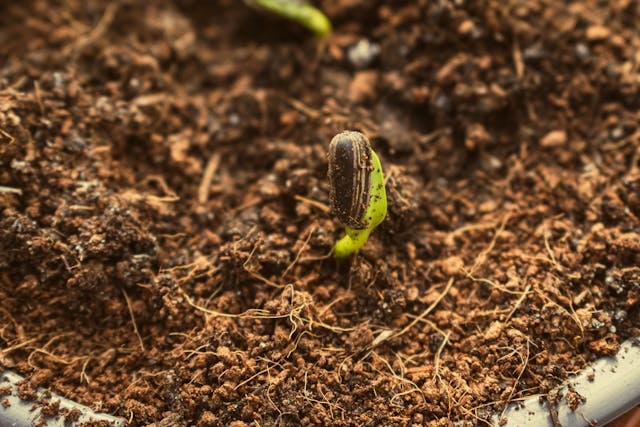
How Long Does It Take to Compost?
The time it takes for compost to break down can vary widely based on several factors, including the materials used, moisture levels, temperature, and the method of composting. Generally, it can take anywhere from a few weeks to several months for compost to mature. Here’s a breakdown of the timeline:
- Hot Composting: This method can produce compost in as little as three weeks to three months. It involves maintaining high temperatures by regularly turning the pile and ensuring a good balance of green (nitrogen-rich) and brown (carbon-rich) materials.
- Cold Composting: This is a slower process and can take six months to a year. In this method, you simply pile up your organic waste and let nature do the work.
Using Your Finished Compost
Once your compost is ready, you’ll notice a rich, earthy smell and a crumbly texture. You can use it in several ways to benefit your garden:
- Soil Amendment: Mix compost into your garden beds to improve soil structure, drainage, and nutrient content. It helps sandy soils retain moisture and allows clay soils to drain better.
- Mulch: Spread a layer of compost on top of your soil to suppress weeds, retain moisture, and regulate soil temperature.
- Fertilizer: Use compost as a natural fertilizer for your plants. It provides essential nutrients without the harsh chemicals found in many commercial fertilizers.
- Potting Mix: Blend compost with potting soil for houseplants or container gardens to enhance growth.
- Seed Starter: Use a mix of compost and potting soil to start your seeds, giving them a nutrient-rich environment.
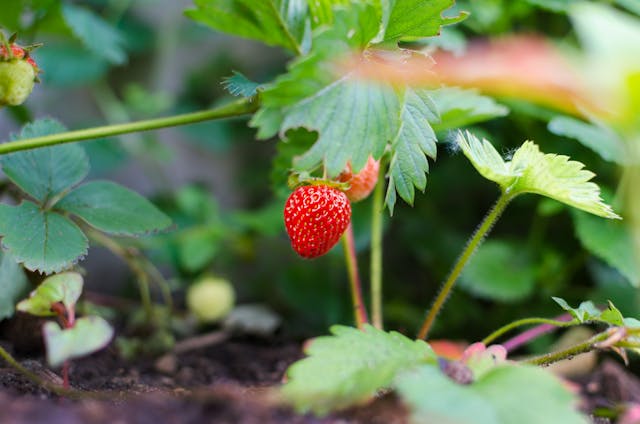
The History of Composting
Composting is not a modern invention. The practice dates back thousands of years, with evidence suggesting that ancient civilizations, such as the Greeks and Romans, utilized composting techniques. They understood the benefits of recycling organic materials for agricultural purposes, recognizing that healthy soil leads to bountiful crops.
In the late 19th century, composting became more formalized with the introduction of the “compost heap” concept in Europe. The growing awareness of soil science and the importance of organic matter spurred the development of composting techniques, which have only evolved in recent decades.
Who is Composting?
Today, composting has gained popularity among a wide range of people, including:
- Homeowners: Many people are discovering the benefits of composting in their backyards, contributing to a sustainable lifestyle and creating healthy gardens.
- Urban Dwellers: Apartment residents are increasingly adopting container composting methods or community composting initiatives to minimize their waste.
- Schools: Educational institutions are incorporating composting programs to teach children about sustainability, environmental responsibility, and science.
- Farmers: Many organic farmers use compost to enhance soil health and yield, promoting sustainable agriculture practices.
The Quality of Home Compost vs. Store-Bought
One of the significant advantages of home composting is the quality of the compost you produce. While store-bought compost may be convenient, it often lacks the richness and microbial diversity found in homemade compost. When you compost at home, you can control the ingredients, ensuring that your compost is free from synthetic additives and chemicals. This means that you are creating a natural product that benefits your garden and promotes healthy plant growth.
In addition, homemade compost is usually fresher and can be tailored to the specific needs of your soil. For instance, if your garden soil is low in nitrogen, you can add more nitrogen-rich materials to your compost pile. Conversely, if your soil is heavy in nitrogen, you can balance it out with carbon-rich materials.

Getting Others Involved
If you’re excited about composting, why not spread the word? Involve your family, friends, and neighbors in this eco-friendly practice. Start a composting group in your community or host workshops to teach others how to compost. Share your experiences and tips through social media or community platforms. By encouraging others to compost, you’re helping to create a positive impact on the environment.
Final Thoughts on Composting
Composting is a simple, rewarding, and impactful way to contribute to a sustainable future. It connects us to the natural world, teaches us about the cycles of life, and allows us to take action against waste and pollution. By transforming our food scraps and yard waste into valuable compost, we can improve our gardens and enrich our soil while reducing our carbon footprint.
Whether you have a sprawling backyard or a small balcony, there’s always a way to compost. So grab your kitchen scraps, pick a spot, and start your composting journey today! It’s not just a step towards a greener planet; it’s a step towards a healthier, more vibrant garden and community. Together, we can make a difference, one compost pile at a time.

